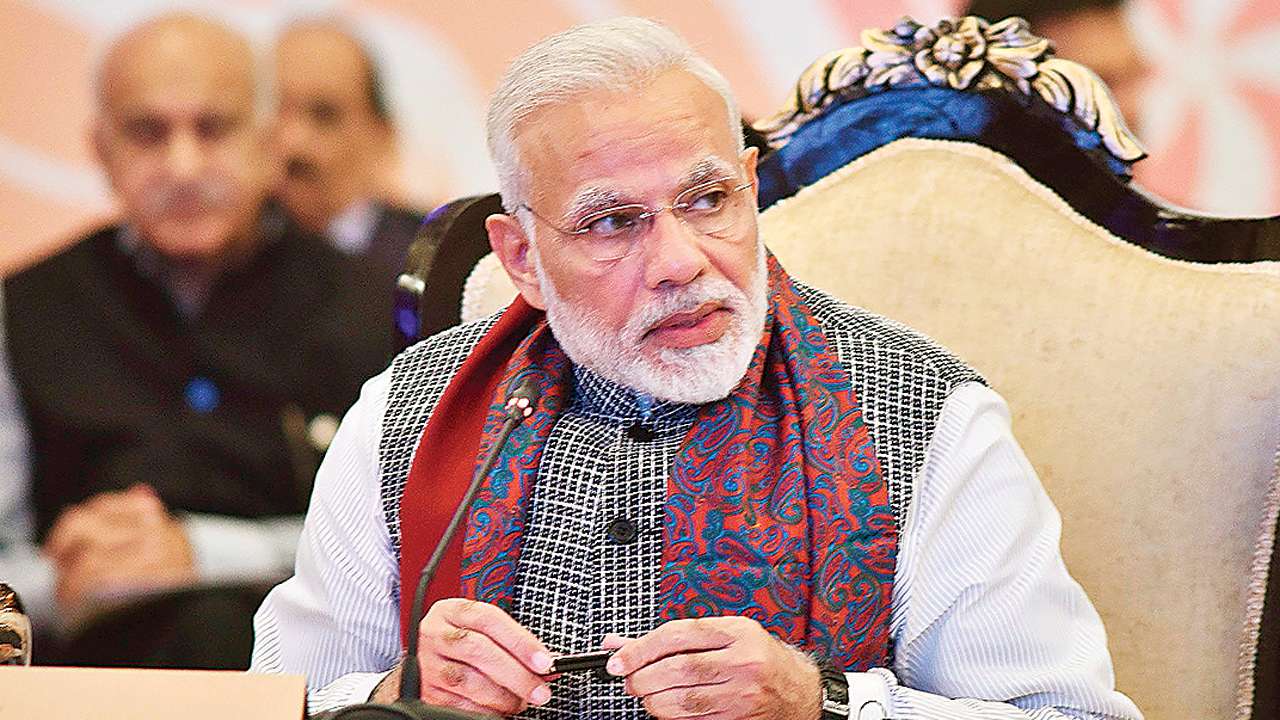
Prime Minister Narendra Modi has made an important point on an issue, which is dogging his government for some time.
On Monday, he decided to concentrate on the issue of continuos oil price hike. By placing the onus of spiralling crude prices on global producers, the prime minister had at one stroke attempted to focus on the twin issues of oil prices and the mode of payment needed to pay for oil.
With General Elections due in a few months, he has done well to address his constituency. When Modi raised the subject in the presence of ministers from Saudi Arabia and UAE, two important oil producing countries, the aim was two-fold.
One, to sound the alarm bell over overly high crude prices that were ultimately bound to recoil on the oil producing nations themselves and two, and more significant, pitching for a rupee payment mechanism to partly cushion India’s oil import bill.
No surprise, that the Prime Minister suggested a review of payment terms to provide relief to the local currency, in India’s case the Rupee. That the Prime Minister raised key issues relating to change in mode of payment makes imminent sense.
India, which imports over 80 per cent of its oil needs, spent $87.7 billion on importing 220.43 million tonnes (MT) of crude in 2017-18. Being one of the world’s largest oil exporters has its downsides. Surging crude prices have coincided with a weakening rupee, which can have only one fallout — a ballooning current accounts deficit (CAD), any government’s nightmare, because of the cascading effect it is likely to have.
The combination of oil price hike and a weakened local currency will have its immediate fall out on the performance of companies, particularly oil marketing companies. It would also leave its deep impact on declining gold prices and base metals would be under pressure.
Even more critically, it would lead to all round inflation of daily usables, which any government can ill afford. While it is too early to say what the impact of the Prime Minister’s latest stand, as reflected at the Monday round-table meeting would be, it is safe to say that given India’s growing diplomatic clout since the arrival of Modi, particularly in its bilateral relations with Middle East, a favourable view could be taken in the long run if not immediately.
A Rupee trade helps to save precious — nay crucial — foreign exchange. As a matter of fact, India is actively considering doing business with major trading partners, which also include non-oil exporting nations in local currencies. In 2013, the government had set up a task force with top representatives of the government and business, to draw up a list of countries with which India could consider doing its trade in rupees.
Its findings are now with the Finance Ministry. The PM’s efforts at the meeting could just be what the doctor ordered.